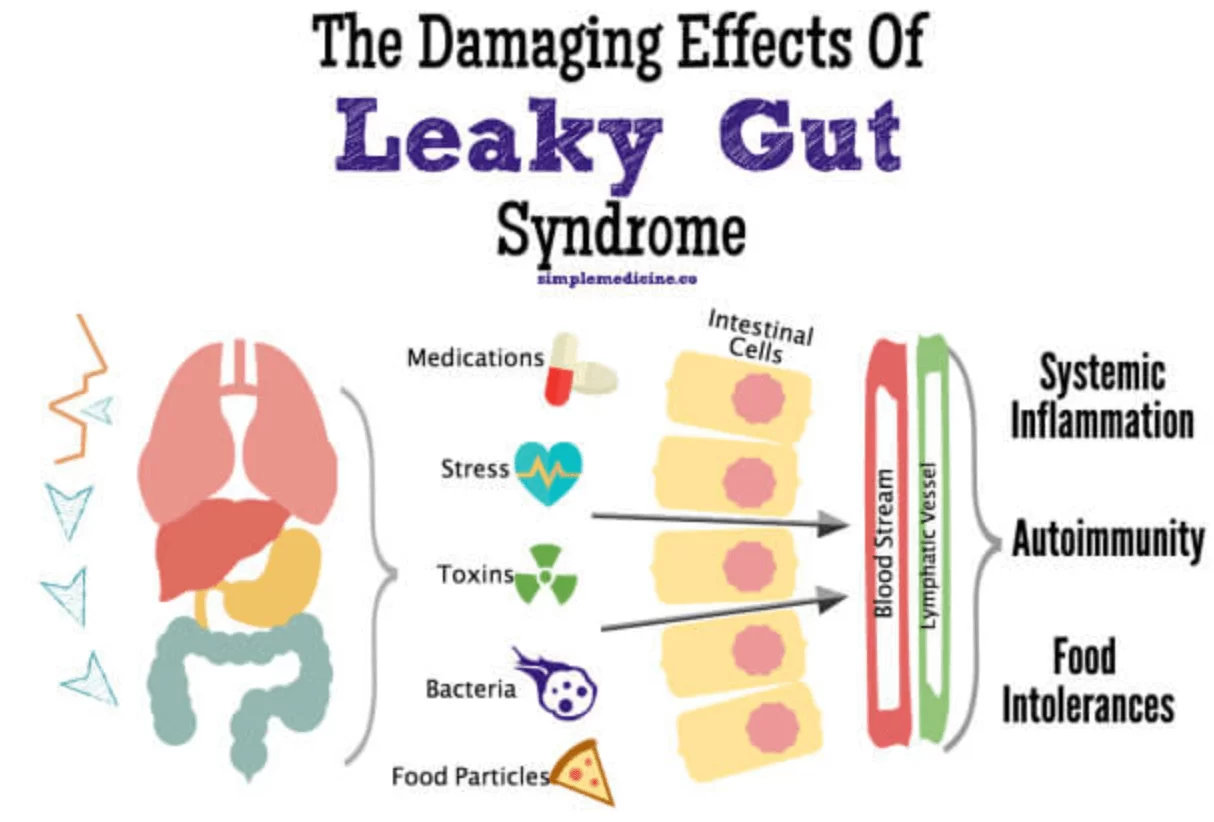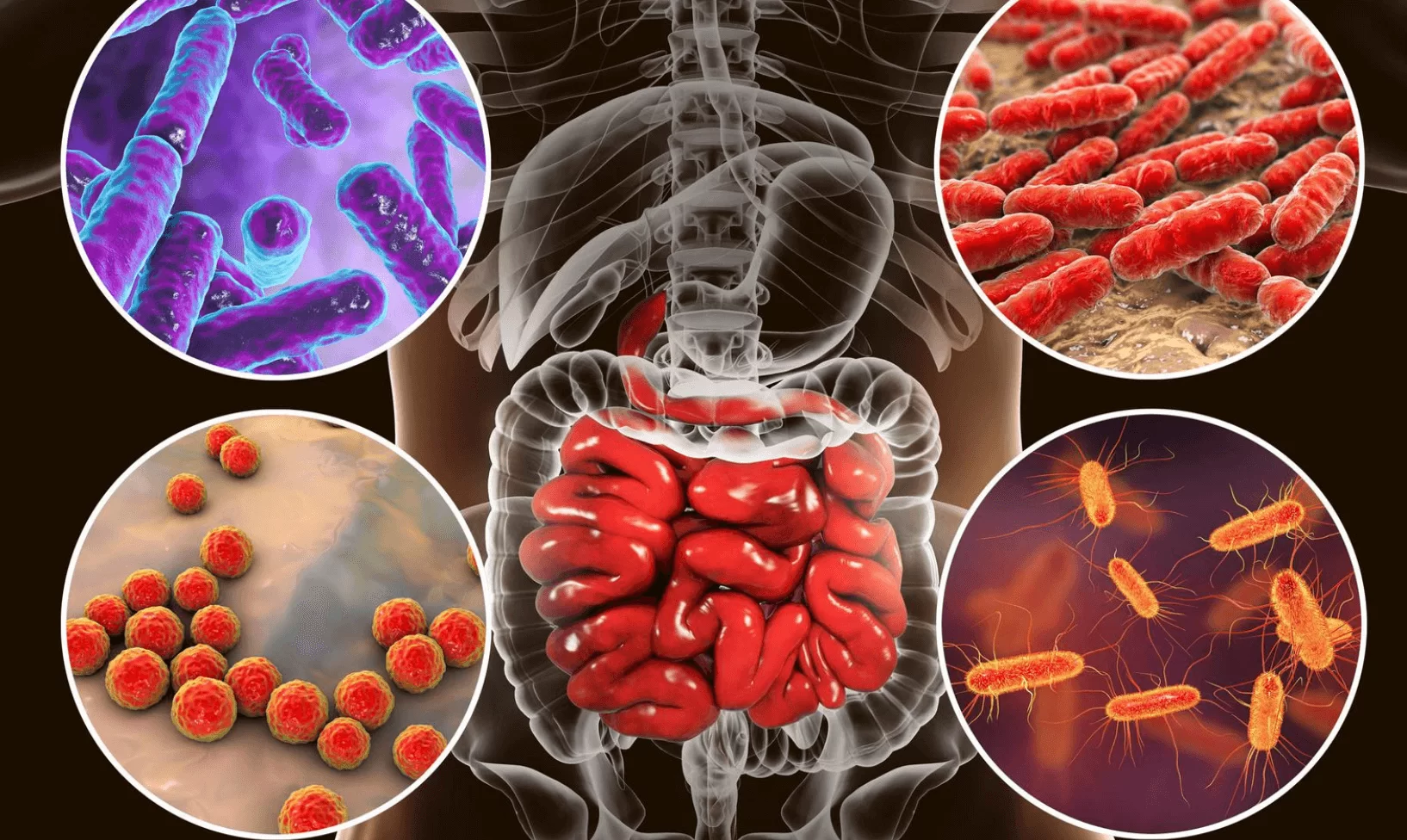
Probiotics could be the solution to your gut health issues. That's because all disease begins in the gut, according to Hippocrates. The human digestive system contains more than five hundred strains of bacteria, most of which are necessary for good health, but some of which are pathogenic. A healthy balance generally equates to 85% ‘good’ or ‘friendly’ bacteria, and 15% ‘bad’ bacteria and yeasts.
As long as the majority of strains fall into the ‘good’ category, the rest will be kept in check. The problem is that because of the prevalence of poor dietary habits, excessive sugar consumption, disruptive antibiotics and other medicines, our friendly bacteria can be easily diminished; this allows the pathogenic bacteria to proliferate, tipping the balance in the wrong direction. Over time, if not remedied, this can lead to a plethora of health problems.
Health conditions caused by imbalanced gut bacteria
They might experience ‘irritable bowel syndrome’, inflammation in the bowel, constipation or diarrhea; they may feel constantly bloated and gassy. Crohn’s disease and kidney stones are some of the more serious conditions that can stem from an imbalanced gut.
Infections, allergies, dietary intolerances and increased frequency of colds are also common, due to reduced immunity.
When candida yeast is able to proliferate in the gut and breakthrough into the bloodstream, yeast infections such as thrush, fungal nails, athlete’s foot, and skin conditions like eczema and ringworm may develop. The name for this problem is candidiasis, and it is a systemic fungal infection. The vast majority of cancer patients have a candida problem, indicating that candidiasis can lead to cancer.
Eating a healthy, balanced diet is one of the keys to keeping the gut bacteria appropriately balanced, but if you have ever consumed antibiotics or the birth control pill, for example, it is thought to be impossible to ever restore the original state.
However, it is possible to reestablish a healthy enough state within the gut so that you aren’t plagued by health problems. The best way to do this is through the use of probiotics.
What are probiotics?
Probiotics are the many strains of ‘good’ bacteria that should be present in the gut to stop the pathogenic strains from taking over.
They have many functions within the body, including (but not limited to) the following:
They help to normalise cholesterol, lower blood pressure and promote healthy digestion. They also fortify the digestive tract so that yeast is not able to break through into the blood and set up colonies elsewhere in the body.
They can lower the intestinal pH, neutralise carcinogenic (cancer-causing) substances you may have consumed and prevent the development of tumours and autoimmune disorders.
Probiotics remove nitrogenous waste from the intestinal tract; the healthy micro-flora consumes the nitrogenous waste and is then able to proliferate. This supports healthy kidney function.
They can also help your teeth by preventing cavities (although you’ll obviously need to stay away from the sugar in the first place), and they can produce Vitamin K1, which helps blood to clot and reduces the risk of strokes and heart disease.
Where to get your probiotics
To restore the numbers of good bacteria and beneficial yeasts, you can do a number of things.
Fermenting your own foods at home is one possibility. Keffir, kombucha and sauerkraut are good examples of fermented foods you can easily make at home. Commercial products like probiotic yoghurts wouldn’t be enough to restore the balance, and it should be noted that pasteurised dairy could actually worsen the problem.
Many people tend to supplement a probiotic as it is a much more convenient and quicker route to fixing the problem, but it is also useful to introduce probiotic foods into your diet.
It is important to check the labels as not all probiotics contain the same bacteria and the amounts contained can vary. If you have a health condition, you’ll want to make sure you regularly take a powerful probiotic. EM-PRO Probiotics contain a minimum of 1 million colony-forming units per ml (cc) of this crucial micro-flora.
Look for bacteria strains such as Lactobacillus Fermentum, Lactobacillus Plantarum, Lactobacillus Casei, Lactobacillus Bulgaricus, Rhodopseudomonas Palustris, and Saccharomyces Cerevisiae.
When should probiotics be taken?
Ideally you will take the probiotics toward the end of a meal. This is because the likelihood of stomach acid destroying some of the friendly bacteria is lessened.
You can still take probiotics on an empty stomach but it is most sensible to try to get the maximum benefits from them. If you take them on an empty stomach before sleeping, however, you can balance the bacteria in the throat, sinuses, mouth and ears. If you use liquid probiotics, you can do this by putting a few drops in your mouth and swirling them around.
There is a very good chance that if you can effectively rebalance the bacteria in your gut, a lot of your health problems will disappear and you’ll feel more energised and vital.




 How to Stop Heart Attacks and Strokes with Cayenne Pepper
How to Stop Heart Attacks and Strokes with Cayenne Pepper
 The Right Methodology For Formulating Dimethyl Sulfoxide Mixture.
The Right Methodology For Formulating Dimethyl Sulfoxide Mixture.














